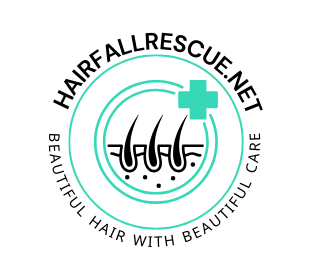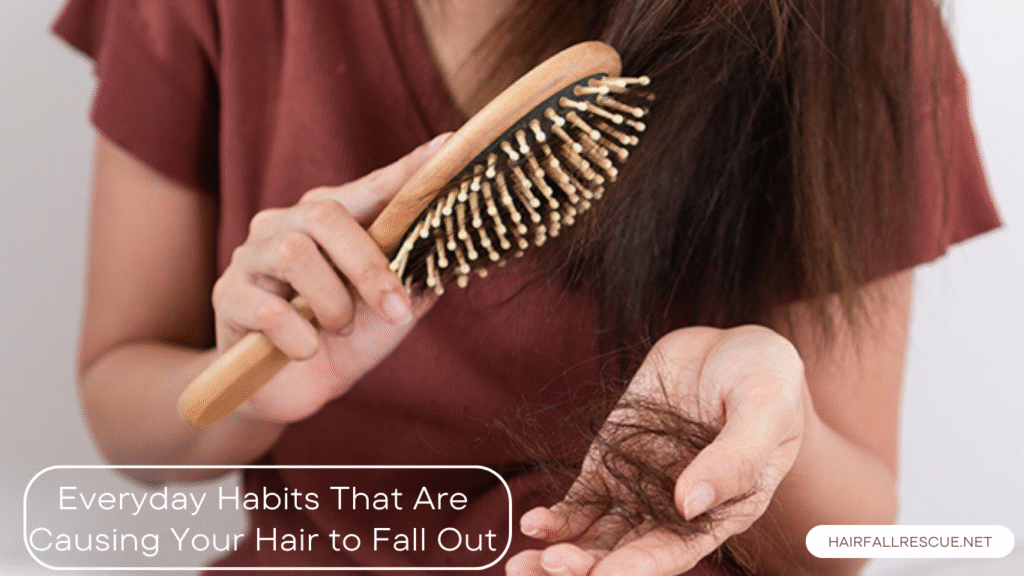Discover the top 10 daily habits that contribute to hair fall and learn effective solutions to prevent further hair loss.
Introduction
Hair fall is a common concern affecting individuals across various age groups. While factors like genetics and hormonal imbalances are well-known culprits, everyday habits often go unnoticed as significant contributors to hair loss. Understanding and modifying these habits can play a crucial role in maintaining healthy hair.
1. Overwashing Your Hair
Frequent hair washing can strip the scalp of its natural oils, leading to dryness and breakage. While cleanliness is essential, excessive washing disrupts the natural balance of oils that protect and nourish the hair.
Solution: Limit hair washing to 2-3 times a week and use a mild, sulfate-free shampoo to maintain the scalp’s natural moisture.
2. Using the Wrong Hair Products
Hair products containing harsh chemicals like sulfates, parabens, and alcohol can damage hair follicles and lead to increased hair fall. These ingredients can cause scalp irritation and weaken hair strands over time.
Solution: Opt for hair care products with natural ingredients and free from harmful chemicals. Look for shampoos and conditioners that are specifically formulated to strengthen hair and promote growth.
3. Towel-Drying Aggressively
Rubbing wet hair vigorously with a towel can cause hair strands to stretch and break. Wet hair is more susceptible to damage, and aggressive drying methods exacerbate this issue.
Solution: Gently pat your hair dry with a soft towel or use a microfiber towel to absorb excess water without causing friction.
4. Poor Dietary Choices
A diet lacking essential nutrients like iron, protein, and vitamins can weaken hair structure and lead to hair fall. Nutritional deficiencies directly impact hair health and growth.
Solution: Incorporate a balanced diet rich in leafy greens, lean proteins, nuts, seeds, and fruits. Foods high in vitamins A, C, D, and E, as well as iron and zinc, are particularly beneficial for hair health.
5. Sleeping with Wet Hair
Going to bed with wet hair can lead to increased hair breakage and scalp issues. The moisture creates a conducive environment for fungal infections and weakens hair strands.
Solution: Ensure your hair is completely dry before sleeping. If you must wash your hair at night, use a blow dryer on a cool setting to dry it thoroughly.
6. Inadequate Hydration
Dehydration affects the health of your hair by making it dry, brittle, and more prone to breakage. Water is essential for maintaining the health of hair cells and supporting growth.
Solution: Aim to drink at least 8 glasses of water daily to keep your body and hair adequately hydrated.
7. Brushing Wet Hair
Hair is at its weakest when wet, and brushing it during this state can cause significant breakage. Wet hair stretches more and is more likely to snap under tension.
Solution: Use a wide-tooth comb to gently detangle wet hair, starting from the ends and working your way up to the roots.
8. Excessive Heat Styling
Regular use of heat styling tools like straighteners, curling irons, and blow dryers can damage the hair shaft, leading to dryness and breakage.
Solution: Limit the use of heat styling tools and always apply a heat protectant spray before styling. Allow your hair to air dry whenever possible.
9. Tight Hairstyles
Constantly wearing tight hairstyles such as ponytails, braids, or buns can cause tension on the hair follicles, leading to a condition known as traction alopecia.
Solution: Opt for looser hairstyles and avoid tying your hair tightly. Give your hair breaks between styles to reduce stress on the follicles.
10. Chronic Stress
Stress can disrupt the hair growth cycle, pushing hair follicles into a resting phase, which leads to hair shedding. Prolonged stress can also trigger conditions like telogen effluvium.
Solution: Incorporate stress-reducing activities into your routine, such as meditation, yoga, or regular exercise, to promote overall well-being and hair health.
Conclusion
Hair fall can often be mitigated by recognizing and altering daily habits that negatively impact hair health. By implementing the solutions provided, you can take proactive steps toward reducing hair loss and promoting stronger, healthier hair.
Internal Links:
- Top 5 DIY Hair Masks to Strengthen Your Hair Naturally
- Is Your Shampoo Causing Hair Fall? Here’s How to Tell
External References:
- 10 habits that lead to excessive hair fall | Times of India
- How to Stop Hair Shedding, According to Scalp Experts | Byrdie


